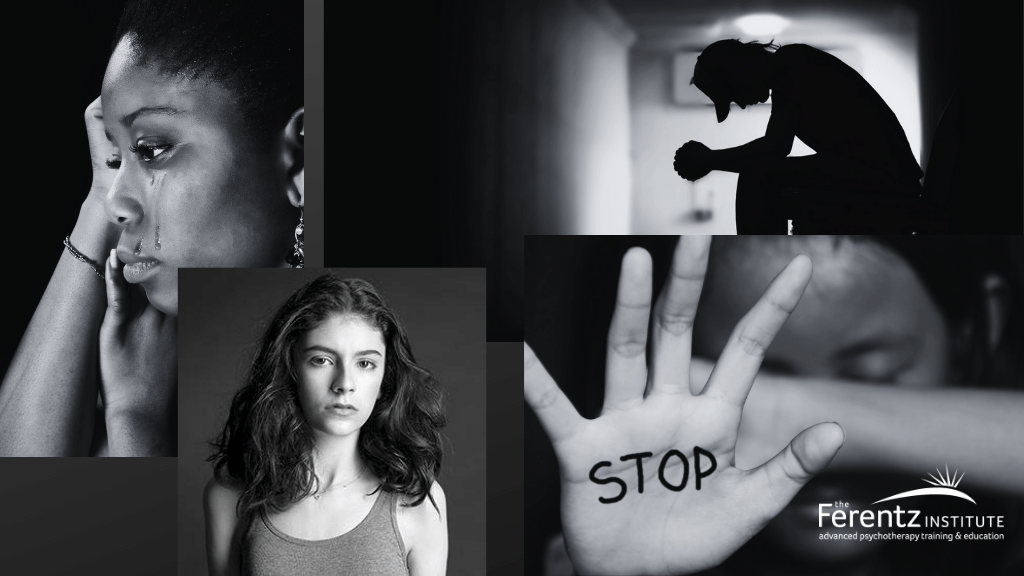
Shame can be dramatically reduced when clients experience unconditional, nonjudgmental compassion within the therapeutic relationship from their mental health clinician. Although I believe everyone has a wise and compassionate part within them, it can initially be challenging for clients to access it. When mental health clinicians model genuine warmth, empathy, and caring as an integral part of trauma treatment, it creates an opportunity for clients to introject the compassion that they may have difficulty accessing on their own. As therapists build a secure attachment with their clients it moves them away from feelings of invisibility and worthlessness. The mental health clinician’s commitment to the relationship teaches clients that they ARE worth it!
The Value of Psycho-Education in Trauma Treatment
When therapists incorporate psycho-education in their trauma treatment with sexual abuse survivors it can help to address and reduce the shame that many clients feel when falsely believing they “participated” in those traumatic experiences. This is particularly true when abusers try to confuse their victims by intentionally evoking arousal or orgasm, or if they tell the victim that they “asked for it” or “liked it.”
Trauma survivors can also feel a sense of shame if they needed to use the freeze response to survive. Rather than recognizing that their passivity or dissociation was life-saving, clients often equate freeze responses with being “cowardly” or “not fighting back hard enough.” Here again, the authority and credibility of the therapist and their use of psycho-education in trauma treatment can go a long way towards reassuring those clients that their prior freeze responses were brilliant survival mechanisms that saved them.
Resolving Shame as a Viable Option for Trauma Survival
Checking out, “going to the ceiling,” or disconnecting from their bodies helped to navigate the physical pain, confusing sexual feelings or sense of devastating emotional betrayal that accompanied the abuse, particularly when the abuser was supposed to be a trusted caretaker. For most victims, attempting to do fight or flight is either physically impossible, or leads to an exacerbation of the abuse. Therefore, mental health clinicians can normalize and even celebrate the wisdom of their clients’ past freeze responses as the only viable survival option.
There are also trauma survivors who needed to identify with the abuser in childhood, or who were willing to pay the price of being abused in exchange for fleeting moments of affection, connection, attention, or approval. An important aspect of trauma treatment is helping clients resolve the shame that emanates from that normal and necessary need for attachment and love. It is never the victim’s fault that there were “strings attached” to the minimal amount of attention they received. “Going back for more” is not about wanting to be abused, it’s about needing to be loved.
“Therapists can move clients past the shame that comes from “I’m crazy” and begin to replace it with “I was traumatized and did the best that I could.”
Lisa Ferentz, LCSW-C, DAPA
By letting clients know their coping strategies, thoughts, feelings, body sensations, and behavioral choices “make sense” given where they’ve come from and what they’ve experienced, therapists can move clients past the shame that comes from “I’m crazy” and begin to replace it with “I was traumatized and did the best that I could.” Once that has been legitimately integrated by the client, additional mental health resources for healing are much easier for clients to embrace and incorporate into their therapy journeys.
What have been your experiences with treating clients who deal with the shame of trauma? Please let us know how you’ve dealt with them and what you’ve learned.
Want to learn more about how to address address shame in traumatized clients?
Join Lisa Ferentz in-person on Friday, April 14 for:
“Addressing Guilt and Shame with Traumatized Clients: Using Parts Work with Expressive Modalities.”
The Hilton Garden Inn | 4770 Owings Mills Blvd. Owings Mills, MD 21117
Learn more. Register here.

